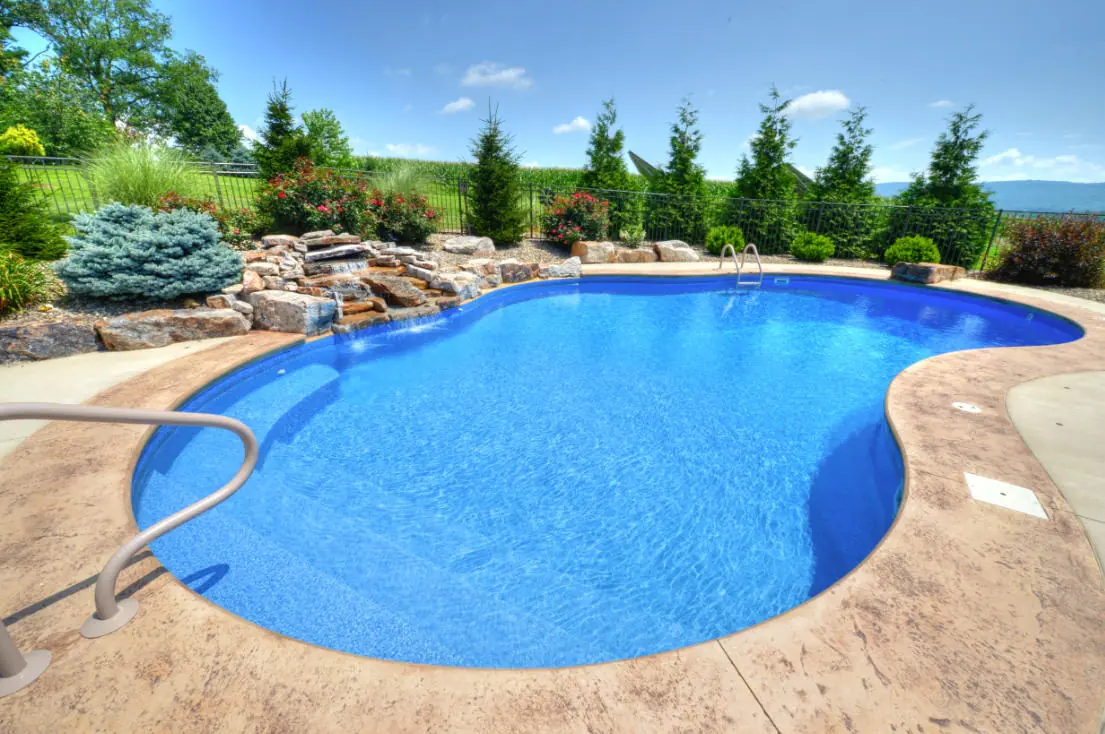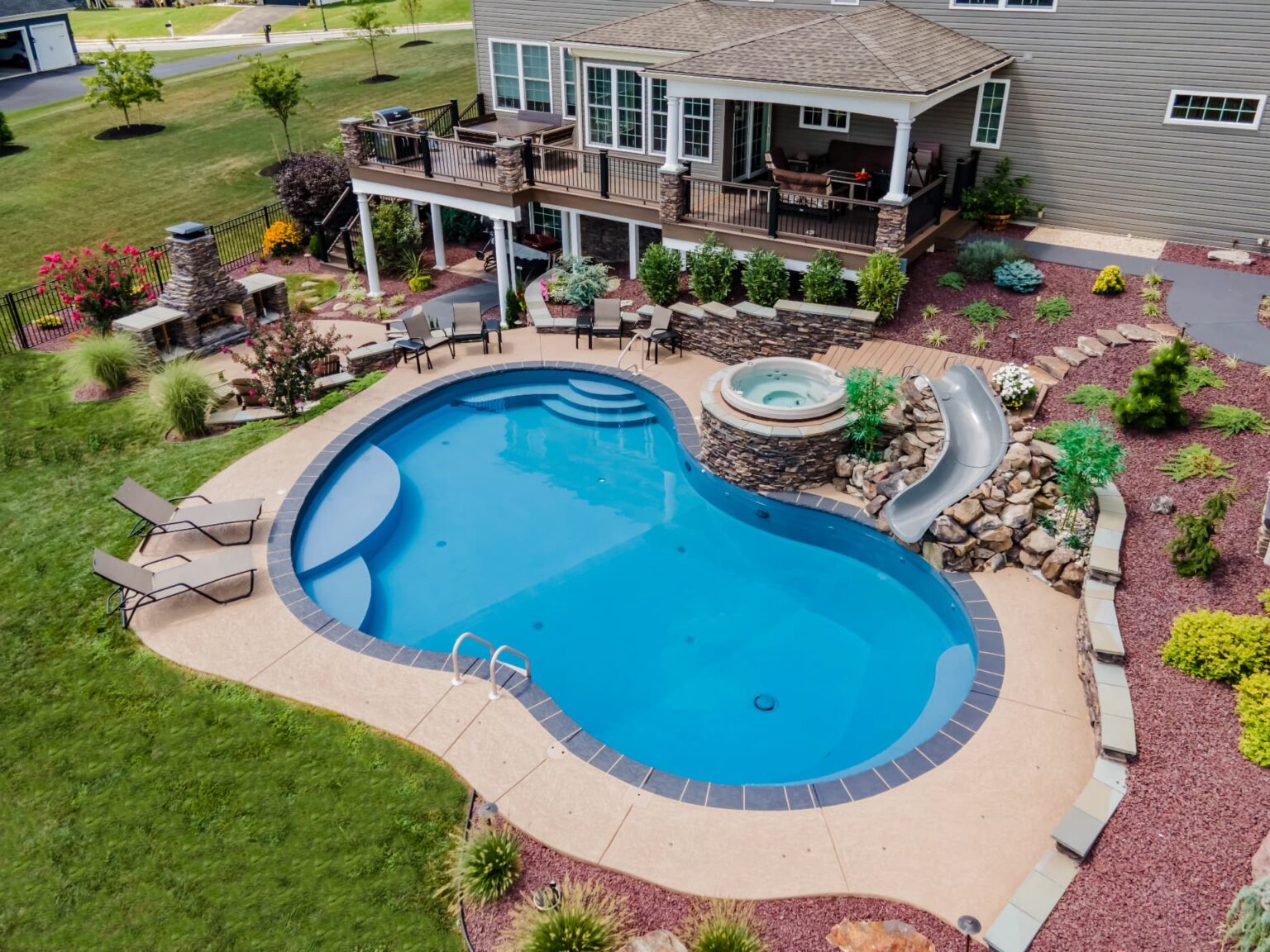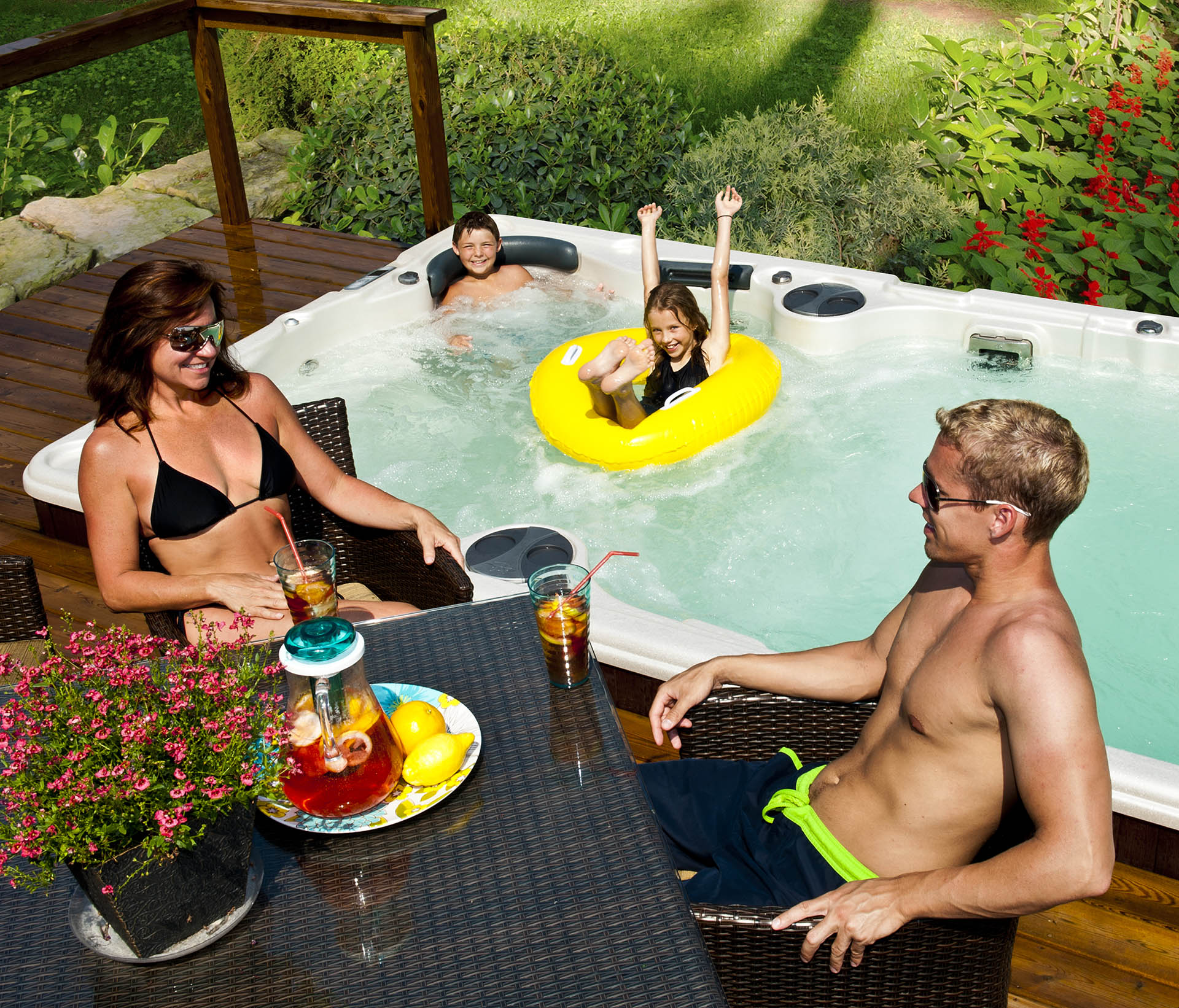You have finally decided that it’s time for you to get your own inground pool in Pennsylvania. Wonderful! But before you go about planning your first pool party, you need to get well acquainted with the requirements for building a swimming pool in Pennsylvania. At Goodall Pools & Spas, we work with our clients to make sure each vinyl-lined and fiberglass pool we build complies with both state and local laws.
Below, we have compiled a list of the primary Pennsylvania swimming pool requirements for your reference. Keep these in mind as you brainstorm pool ideas, and we will help you integrate them into a fabulous pool design.
Permits for Building a Swimming Pool in Pennsylvania
Pennsylvania law requires construction permits for a body of water more than 24 inches deep. A “body of water” includes anything from a plastic kiddie pool to an inground pool. Building and electrical permits are required when these swimming structures are included in the plan.
For inground pools, building and/or zoning permits are necessary for the pool deck, any pool heaters used, and fencing.
Fencing
A fence or wall must encompass any pool structure fitting the description above. The fencing needs to be at least 48 inches tall to prevent people (especially children) or animals from accessing the pool without supervision.
With an above-ground pool, the pool’s walls can qualify as the pool “fence” provided the walls measure 48 inches from the ground to the ledge. In this case, you will also need a lockable ladder.
Since you don’t want anyone climbing your fence, there needs to be at least 46” between the top and bottom rails. Your house may also serve as a barrier fencing in your pool on one side. If this is the case, equip any entrances to the pool with a gate system described in the next section.
Gates
Of course, your fence structure will need a reliable, childproof gate. This means that it will be self-closing and latch automatically. If your house acts as a barrier to your pool, take note of where entry occurs. Is there a sliding glass door or some other door to the pool area? If so, that door needs to have an alarm installed.
Electrical Requirements for Your Pool
At Goodall Pools & Spas, we do a thorough analysis of our client’s yard and pool design prior to breaking ground. One of the main reasons for this is that pools with a pool pump need to meet a number of electrical requirements.
We are talking about an environment full of water, so we know how precise the electrical work needs to be! Everything from the number of feet between the pool and the convenience receptacle and the size of conduits must be according to code. The pool motor and any metal within five feet of the inside pool wall need to be bonded with the pool with a specific grade of copper wire.
This is the level of detail we execute through the entire electrical checklist.
Pool Inspection
A pool is part of your home, and, like a home, it requires a professional inspection before you may use it. With above-ground pools, inspection occurs when the building project is complete to make sure the pool, fencing, and electrical bonding are up to code.
Inground pool inspection happens at two milestones: before the vinyl liner or fiberglass shell goes in, to verify the electrical, plumbing, and structural requirements are satisfactory; and at the project’s completion to make sure the pool, fence, and electrical bonding are satisfactory.
Goodall Pools & Spas Is Your Guide to Building a Swimming Pool in Pennsylvania
Contact one of our five locations today to learn how our expert staff can help you research the requirements for building your swimming pool in Central Pennsylvania. Visit our Getting Started with a New Pool page for more inspiration on both inground and above ground pools.









